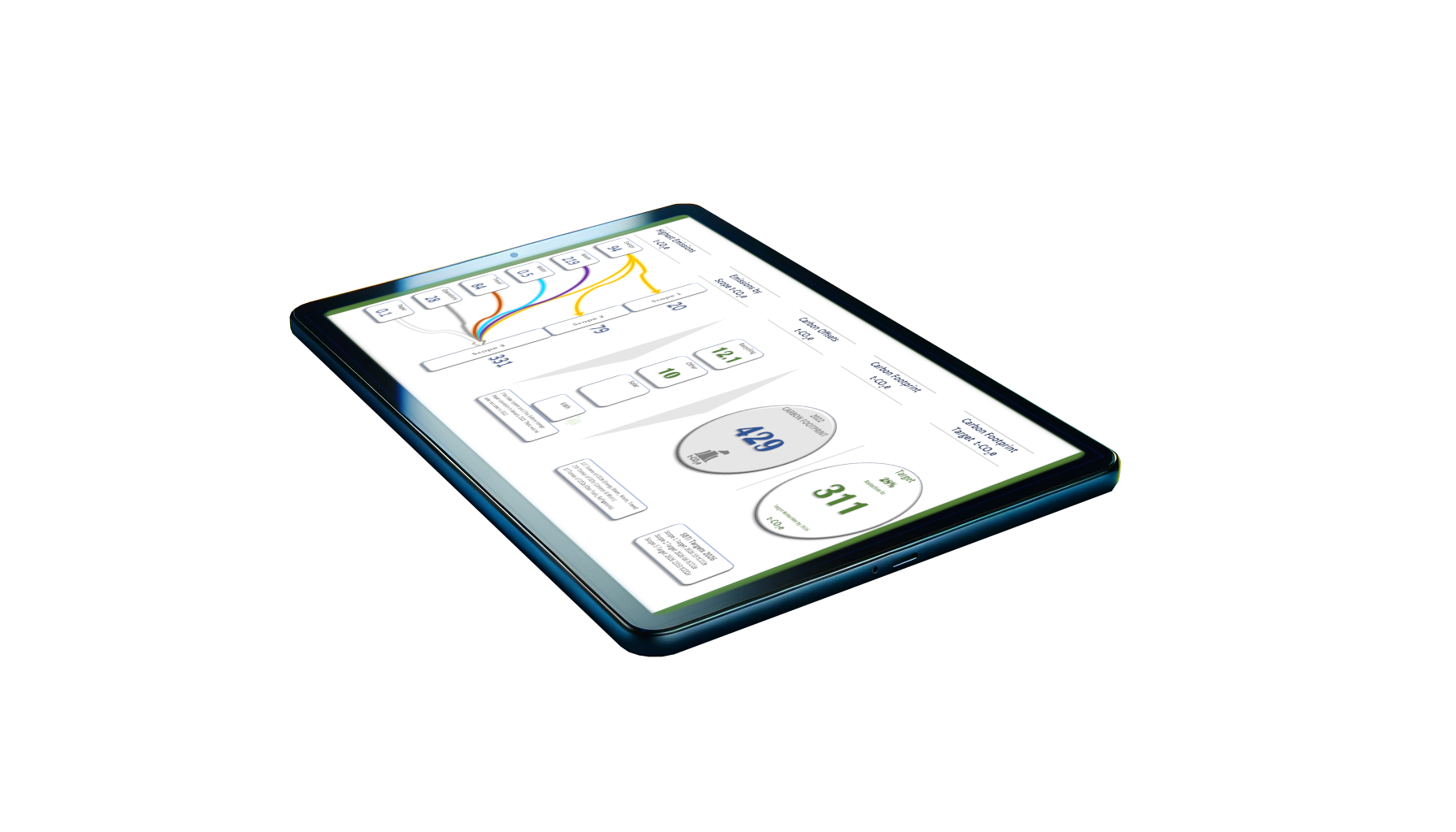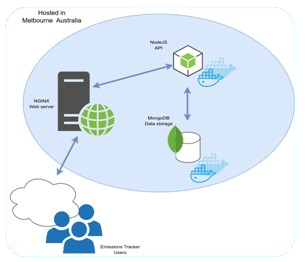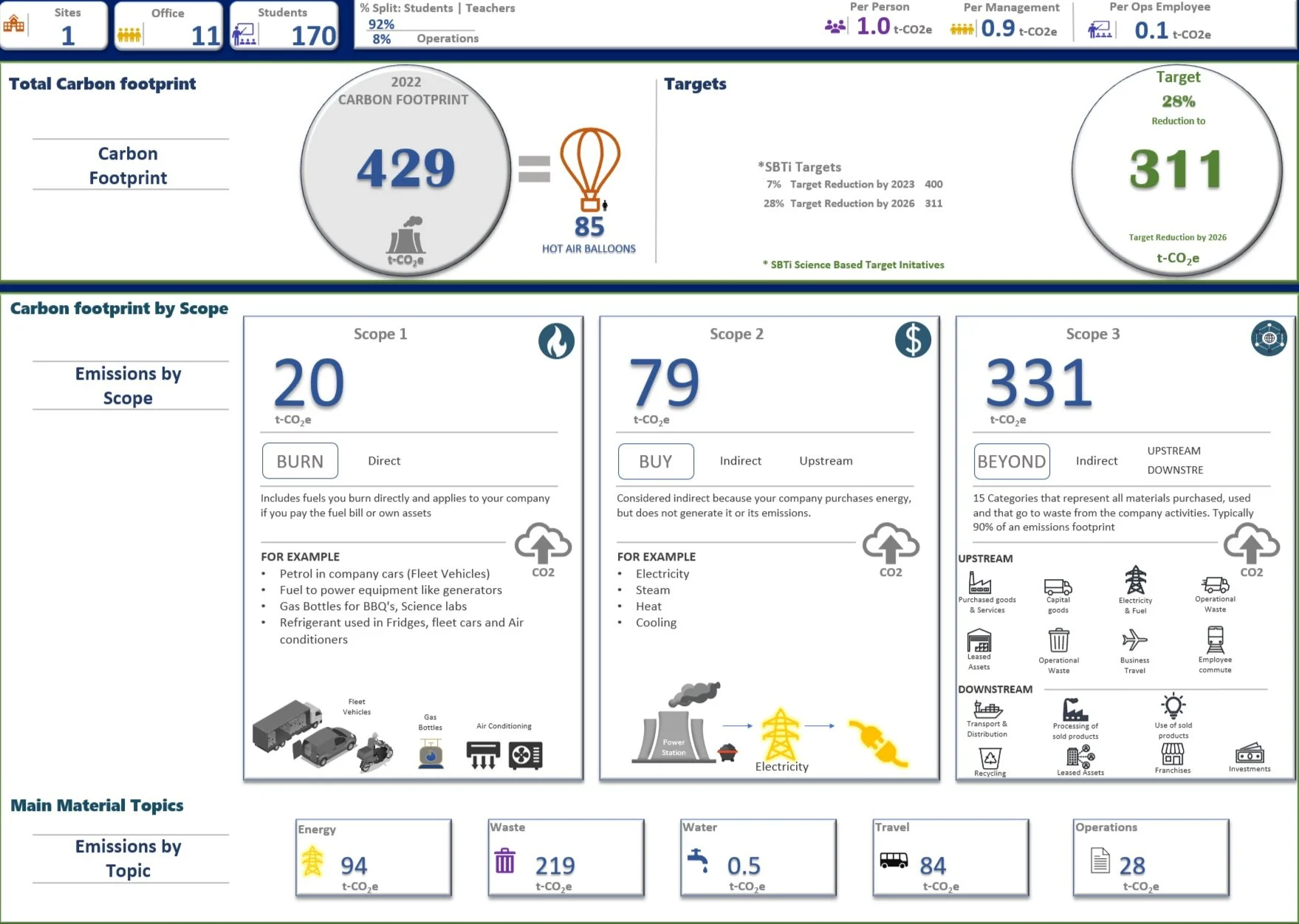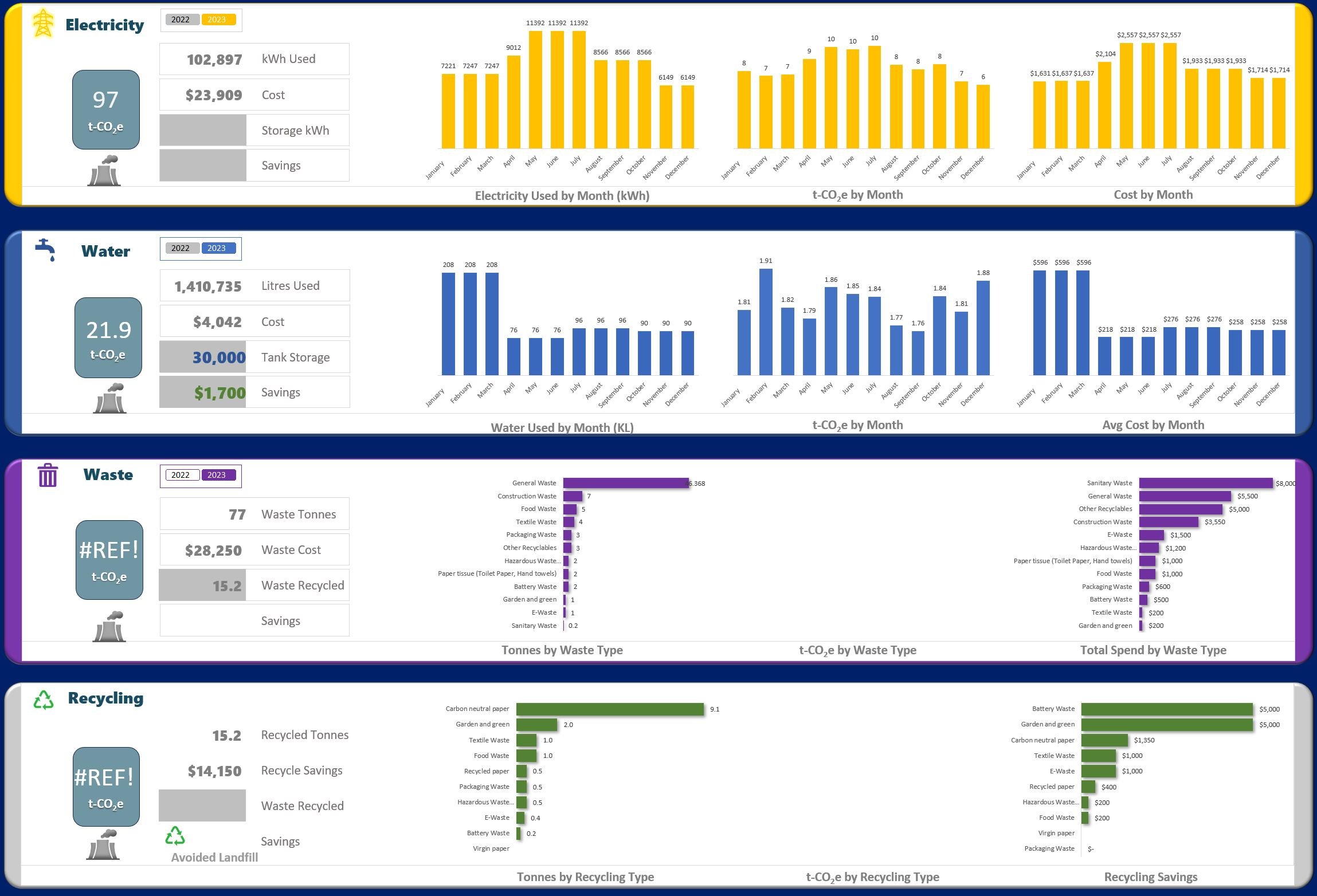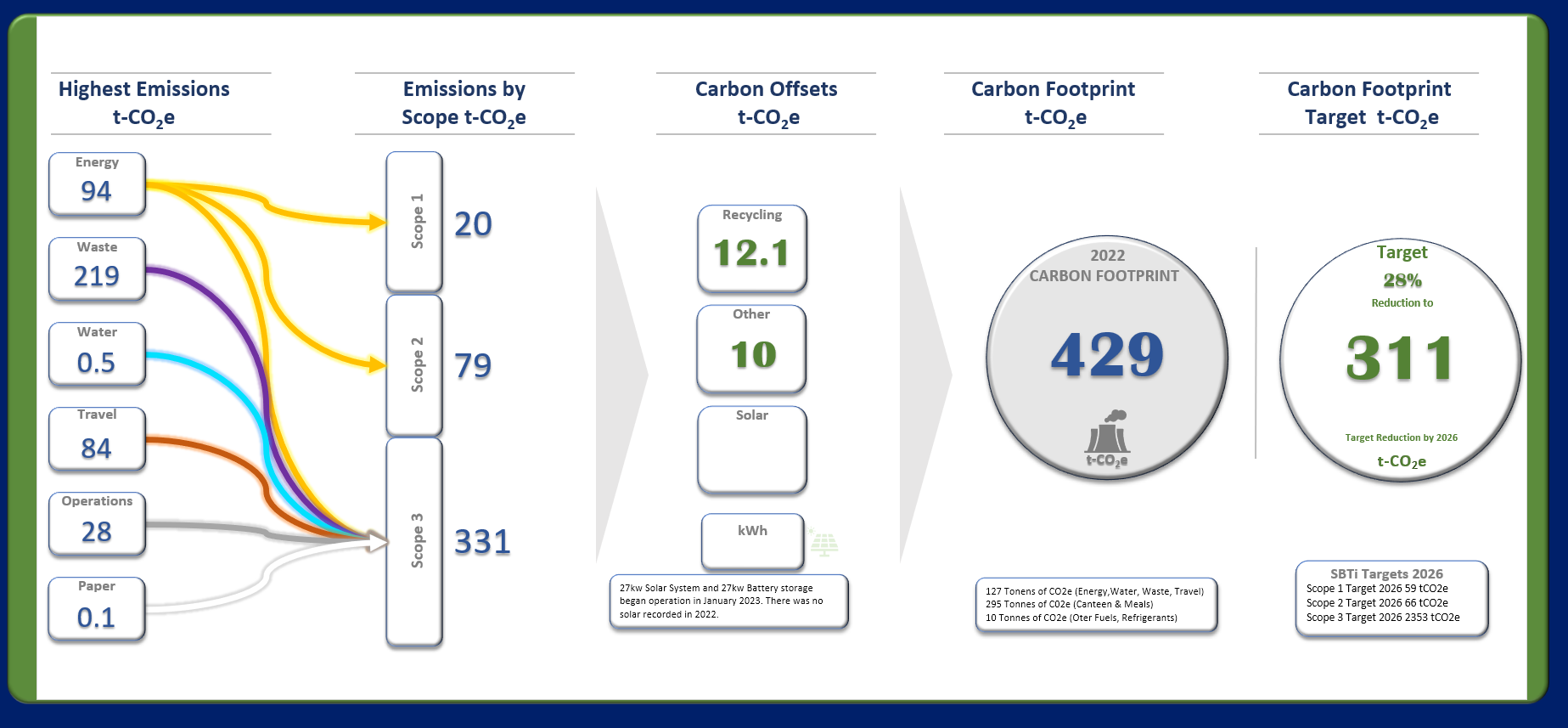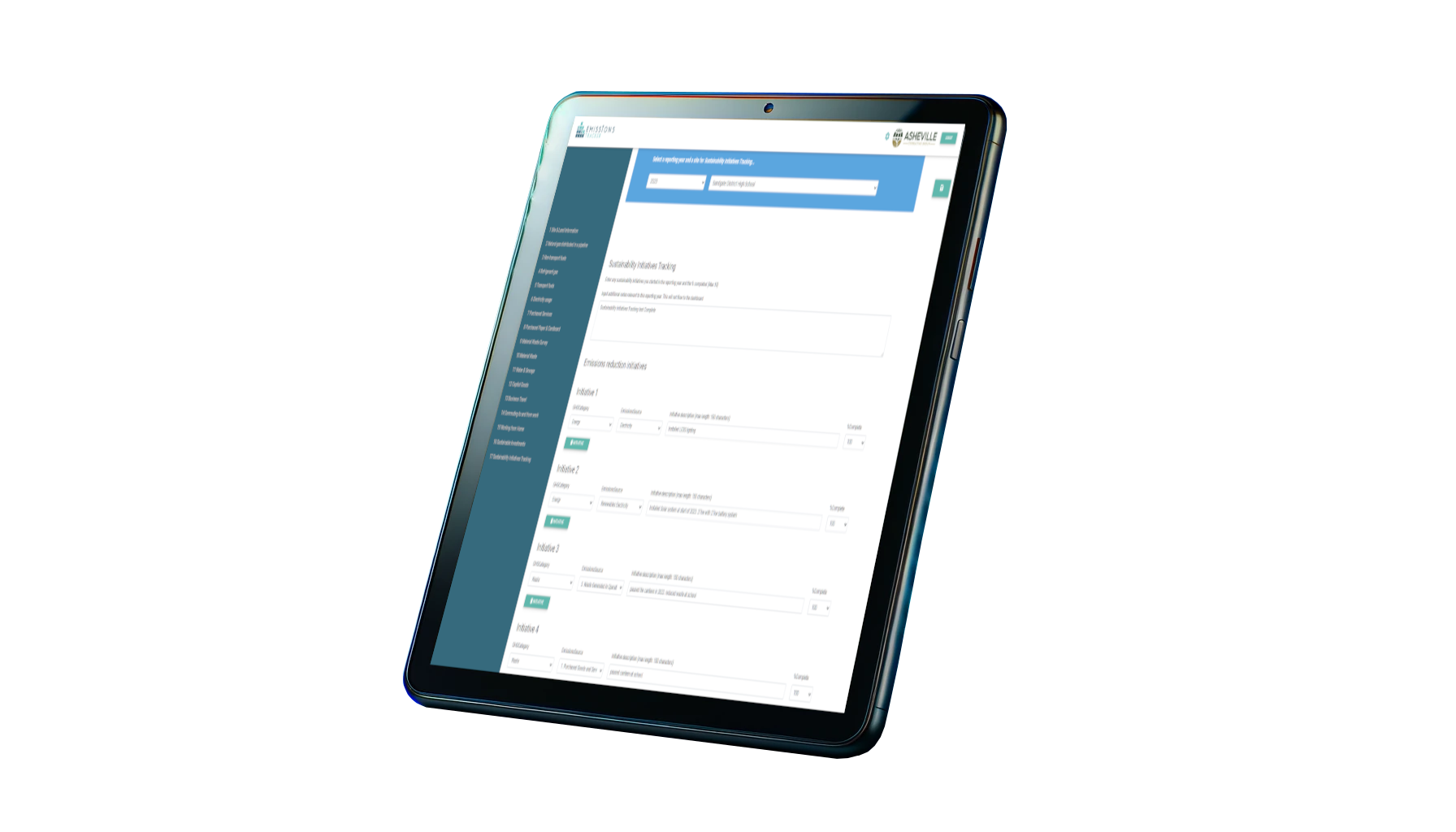Carbon Footprint and Emissions Reporting
Introductory Video - EmissionsTracker
Click to download
Education
Supporting Supply Chain
Maritime & Supply Chain
Logistics & Supply Chain
Governance and Compliance
Asheville Consulting Group & EmissionsTracker align your data with local and international reporting standards.
Compliant with State and Federal Government Policy
State and National Climate Change Reduction Policies
Reducing emissions by 30% on 2005 emissions data by 2030
International Emissions Reporting Standards
Asheville Consulting Group (ACG) utilises internationally recognised environmental reporting standards and requirements ensuring comparative and consistent emissions data.
Internationally Recognised Reporting Requirements:
NGERS: The National Greenhouse and Energy Reporting (Australia)
ISSB: International Sustainability Standards Board
GRI Standards: Global Reporting Initiatives
SBTi’s: Science-Based Target Initiatives (1.5c)
Log in to
EmissionsTracker
Identify relative Scope 1,2 & 3 emissions categories relative to the school
Collect your emissions data on responsive, clean and simple forms, using Laptops, PCs or iPads.
The Process
Enhance your Strategy and Initiatives based on your empirical data. Monitor your yearly targets and initiatives
Analyse your carbon footprint and targets in your dashboard.
The Architecture
Solution Architecture
Data retained onshore (Melbourne Data Centre)
Highly scalable, supporting Schools and Business
Azure: Microsoft Security & Encryption
API’s connection
iPad, touchscreen friendly
Secure Login process
Use EmissionsTracker for Return on Investment
Use EmissionsTracker to identify, record, monitor, and develop strategy to reduce emissions and costs.
EmissionsTracker captures all relevant activities within your business and calculates the emissions produced in the form of tonnes of carbon dioxide equivalent (t-CO2e). This provides an overall and comparable carbon footprint for your business. The reporting will highlight areas of waste or opportunities to reduce operational costs.
Establish baseline of environmental activities for the business
Energy, Waste, Recycling
Data collection Inventory & Report (Past 1+ years consumption)
GHG Calculations & Modelling
(Convert to International standards)
Communications, Targets & Statement
Service Stations
Office
Education
Factory
Warehouse
BUSINESS ACTIVITIES
WASTE
RECYCLING
Costs
✅Online, secure
✅Simple data collection
✅Reporting & monitoring tool
✅International standards
Set and track your sustainability initiatives
Data Collection
✅Online, Simple and Intuitive
✅Accessible and Agnostic: Users can access and input data from any location with an internet connection with multiple devices (PC, Laptop, iPad).
✅Real-Time Data: Real-time data entry and analysis, attach photos, enabling immediate insights and decision-making based on the latest information.
✅Data Integrity: The use of validation rules and formulas ensures that the data collected is consistent and accurate.
✅Scalability: EmissionsTracker is cloud based and can be easily scaled to accommodate all schools and businesses with data and images.
Benefits of EmissionsTracker
Tangible Benefits
Resource Optimization: Data-driven insights can guide resource allocation, for example, deciding when and if to invest in solar and batteries, water tanks, digital transformation.
Cost Savings: Identifying areas of high energy consumption can lead to effective interventions, reducing utility bills, create new revenue streams.
Funding Opportunities: A proven track record in sustainability can make schools more eligible for grants and funding related to environmental initiatives.
Waste Reduction: Effective waste management can reduce disposal costs.
Detailed Dashboard with targets, KPI’s and benchmarking to drive competition to reduce emissions.
Intangible Benefits
Educational Value: Integrating emissions data into the curriculum can offer real-world learning experiences for students they take with them for life.
Community Leadership and Engagement: Transparent emissions reporting not only boosts the school's reputation but also serves as a catalyst for community-wide sustainability efforts.
Reputation: Schools that actively manage and reduce their carbon footprint can become leaders in sustainability, enhancing their public image.
Student and Staff Morale: Being part of a proactive sustainability effort can increase the sense of pride and belonging among students and staff.
Future-Proofing and Regulatory Preparedness: Early adoption of emissions tracking not only prepares schools for potential future regulations but also positions them as leaders in sustainability.





